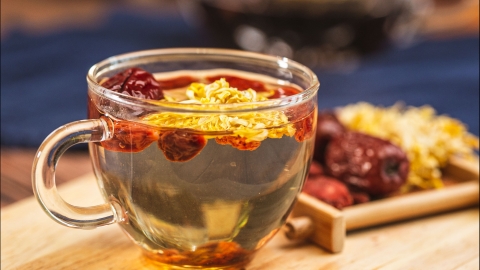What should not be consumed with Lycium barbarum (goji berries) in water?
Wolfberries generally should not be steeped in water together with green tea, milk, crab, longan, or angelica root.

1. Green tea: Green tea contains large amounts of tannic acid, while wolfberries are rich in amino acids and trace elements. Tannic acid may combine with components in wolfberries to form substances difficult for the human body to absorb, not only reducing the nutritional value of wolfberries, but also potentially affecting digestive function if consumed regularly over a long period.
2. Milk: Milk is rich in nutrients such as calcium and protein. Certain components in wolfberries may bind with the protein in milk, affecting the body's absorption of protein, and may also alter the taste and properties of milk, making it less conducive to optimal nutrient utilization.
3. Crab: Crab is cold in nature and rich in protein, calcium, and other nutrients. Wolfberries are neutral in nature and have nourishing properties. When steeped together in water or consumed together, they may reduce each other's therapeutic dietary effects and could potentially cause discomfort such as abdominal pain and diarrhea, as the cold nature of crab conflicts with the nourishing properties of wolfberries.
4. Longan: Longan is warm in nature, sweet in flavor, and has functions of nourishing the heart and spleen and calming the nerves. Both longan and wolfberries possess nourishing properties. When steeped together in water, they may cause excessive nourishment, leading to symptoms such as internal heat and heatiness, particularly in individuals with a naturally heaty constitution, who should be especially cautious.
5. Angelica root: Angelica root is warm in nature and has effects of nourishing and invigorating the blood. When steeped with wolfberries, it may cause excessive internal heat in individuals with a heaty constitution, leading to symptoms such as irritability and insomnia, because both ingredients have nourishing properties that may easily increase internal heat.
When preparing wolfberry water, one should avoid steeping it with the above-mentioned foods together, and consume it appropriately according to one's individual physical condition. A light diet should be maintained in daily life, avoiding spicy and irritating foods.




